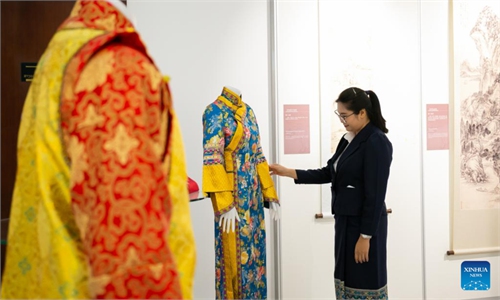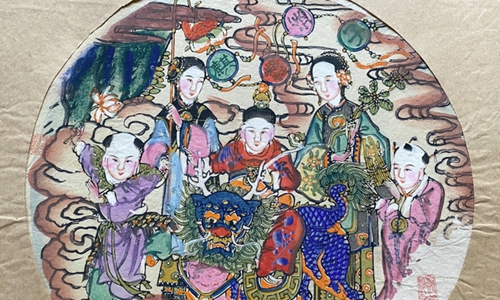ARTS / CULTURE & LEISURE
Artist Zeng Xiaolian continues painting campaign in his 80s
Lifetime exploration
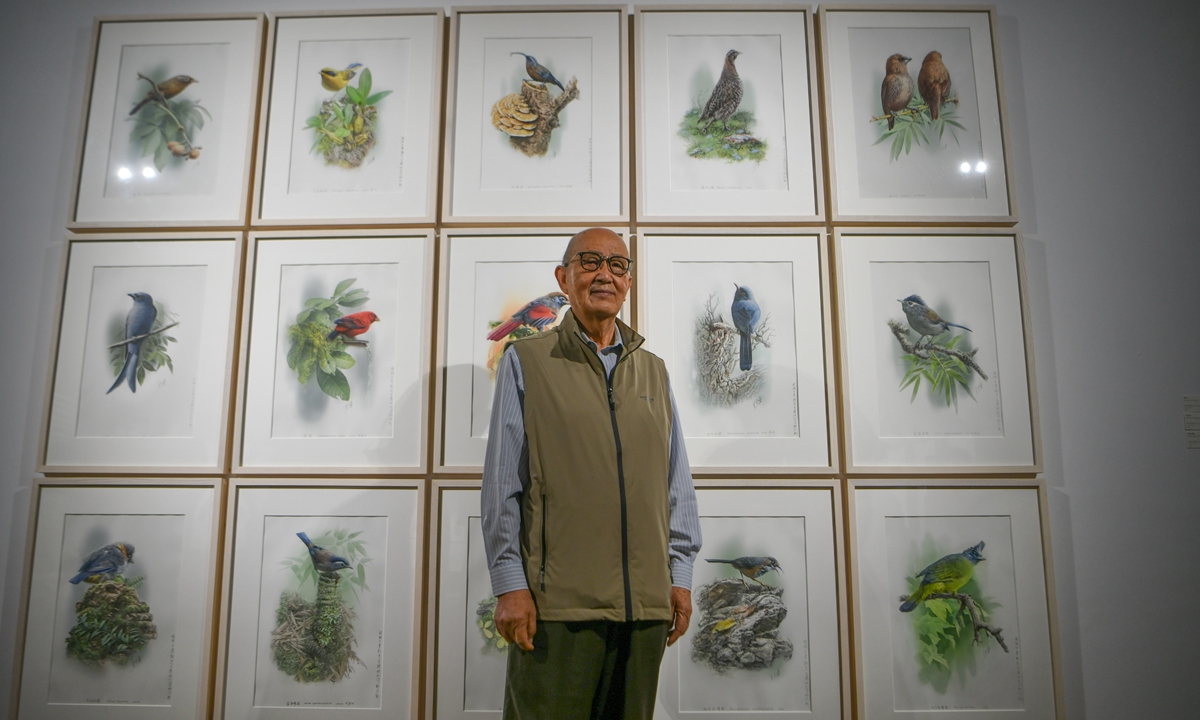
Chinese Biology painting specialist Zeng Xiaolian File photo: VCG
Cancer, diagnosed at 80, is not enough to prevent retired artist Zeng Xiaolian from picking up his pencil, as the 83-year-old botany painting specialist continues his lifetime campaign.
Zeng was diagnosed with lung cancer three years ago. He said it was his passion for painting to allow him to survive that period.
"It was a big blow to me when I was diagnosed with lung cancer at 80, but I thought I just could not give up, because my mission was not over," he told yixi.tv, a Chinese-language program similar to TED Conferences.
"It was really an emotional moment when I found out I was able to pick up the pencil after the operation," Zeng said.
After graduating from senior high school, Zeng joined the Kunming Institute of Botany, Chinese Academy of Sciences in Southwest China's Yunnan Province in 1958, a year before the country started to compile its flora encyclopedia Flora of China.
Yunnan Province, known for its biodiversity thanks to its location and mountainous terrain, is considered botanically the richest region in China. Getting hired as a painter at a botanic institute shaped Zeng's enthusiasm for botany.
"It takes illustrations to tell comprehensively of a plant [when compiling the publication]," Zeng said, adding that he was assigned to draw the specimen to hone his skills for precise painting for the plants, rather than then-mainstream painting which underlines the expression of the artists' feelings.
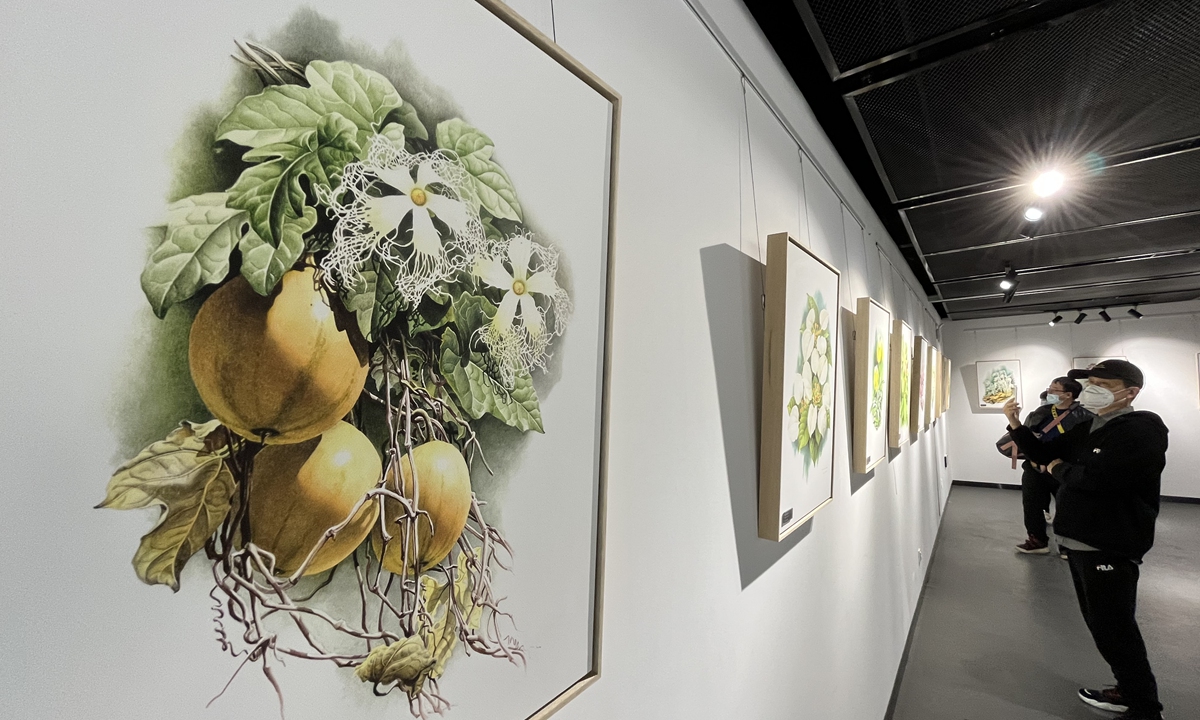
A collection of Chinese biology painting specialist Zeng Xiaolian's paintings exhibited at the National Botanical Garden in Beijing File photo: VCG
Unexpected journey
The Vietnam War (1955-75) has unexpectedly helped Zeng develop a deeper knowledge of nature.
Zeng and his colleagues were assigned to visit the Yunnan area bordering Vietnam, Laos and Myanmar to see what herbs the locals were using when fighting against malaria, a disease that plagued the Vietnamese army when fighting against the US invasion at that time.
The campaign was deemed to help Vietnam develop medicine to control the spreading of malaria, but this journey also benefited Zeng in terms of his botanic painting skills.
"I was the only one in the team to draw pictures rather than scientifically study the plants," Zeng said.
"I was lucky to stay in the mountains four to five hours to draw pictures. It was during that time I developed a thorough understanding of nature."
He noted it was during this period that he no longer treated accuracy as the highest standard for botanic painting, but he just wanted to represent the condition of a plant in its natural habitat.
"It's hard to achieve that goal, to illustrate a plant's eagerness to survive in nature has become my ultimate goal and I'd love to dedicate my lifetime in achieving that," Zeng said.
Monumental work
When color photo was introduced in compiling, Zeng and his elder colleagues stuck to use traditional painting, as it is the best way to "represent the vividness of a plant."
His paintings range from panax notoginseng, a herb that is often used as an ingredient in traditional Chinese medicine, to camellia reticulate, the city flower of Kunming, to fugus boletus reticuloceps.
The compiling of Flora of China finished in 2004 consisted of over 31,000 species of plants. But it came at a time when many of Zeng's elder colleagues did not live to see the book's publication.
Some younger colleagues altered their career paths after the publication to illustrating animals, which Zeng is no stranger to as he retired in 1997. He went on to focus on birds paintings, with a painting album introducing the birds in Yunnan published in 1998.
"Interest during childhood, duty when at work and the habit after retirement has made biology painting an important part of my life," Zeng said.
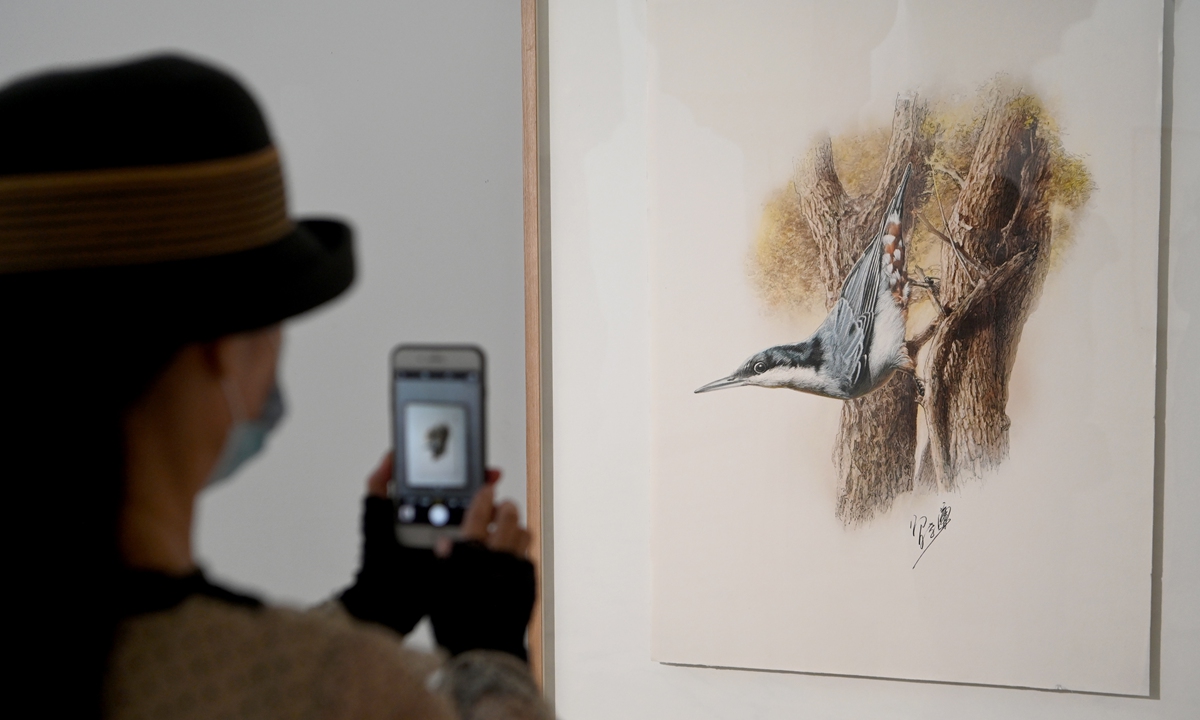
A collection of Chinese biology painting specialist Zeng Xiaolian's paintings exhibited at the National Botanical Garden in Beijing File photo: VCG
More to explore
Zeng has also put his efforts in supporting the illustration of Classics of Poetry, comprising 305 works dating from the 11th to 7th centuries BC which is considered the oldest existing collection of Chinese poetry.
"It is something I cannot do alone so I am working on it with two artist friends," Zeng said, noting that he has finished nearly 90 paintings for the book.
A Japanese artist during the Edo Period (1603-1867) had published a picture book on the Classics of Poetry, but no Chinese painters had ever done so yet.
Zeng said he really enjoyed drawing the content as it is not only about making another round of biology paintings, but also learning the history about Chinese literature and ancient biology.
The man who spent his career learning about nature now believes that human kind will never fully understand nature, but he thinks it is never too late to learn.
"I have been painting throughout my life, I want to become perfect but I can never be," Zeng said.
"Frankly speaking, there isn't a single painting I am fully satisfied with."
"I'm not expecting everyone to love my works, however, I do hope people will see there are lives in these drawings, which also own the right to live and prosper."
